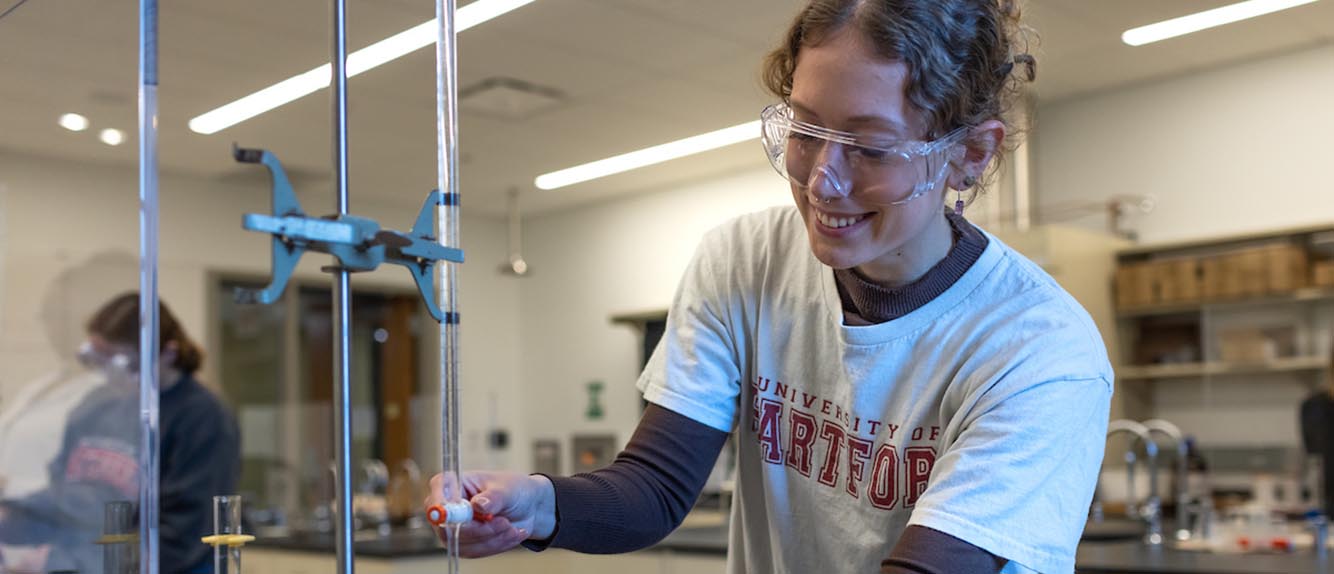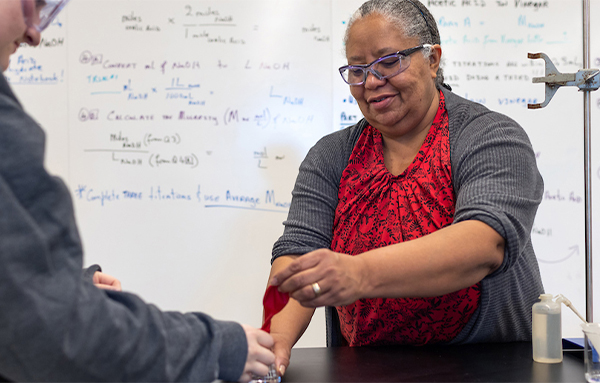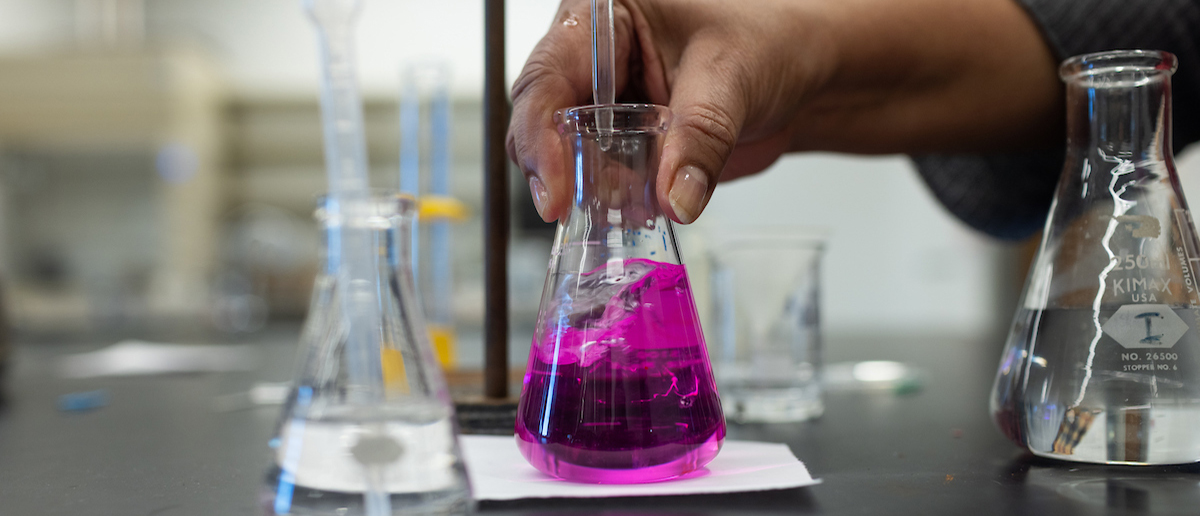
Chemistry - BA
Our chemistry program is certified to meet the standards set by the American Chemical Society, the largest scientific society in the world
Our Chemistry program is certified to meet the standards set by the American Chemical Society, the largest scientific society in the world.
Bachelor of Science
71-72
Minor
22-24
Our Chemistry program is certified to meet the standards set by the American Chemical Society, the largest scientific society in the world.

The Bachelor of Science in Chemistry program prepares you for a career in the chemical industry or for graduate study in specialized areas of chemistry. The curriculum includes a heavy concentration in science and mathematics.
We offer a minor in chemistry that can be paired with another major to help give you an edge when seeking employment. Knowledge of fundamental chemistry can enhance your career in business, education, or law.
A total of 71-72 credits is required that includes core chemistry courses and electives, as well as physics, mathematics, and computer science courses.
You must complete a total of 49 credits in chemistry. Examples of required courses include:
College Chemistry
Quantitative Analysis
Organic Chemistry I and Organic Chemistry II
Physical Chemistry I and Physical Chemistry II
Biochemistry
For more information, and to see a complete list of degree requirements, visit the Course Catalog.
You must complete an additional 6 credits of advanced chemistry courses, as well as 8 credits of physics, 11 to 12 credits of mathematics, and a computer science course such as:
For more information, and to see a complete list of additional degree requirements, visit the Course Catalog.
Requirements for the minor in chemistry are:
8 credits of College Chemistry
15 additional credits in chemistry (at level 2 or above)
For more information, and to see a complete list of minor requirements, visit the Course Catalog.
Bachelor of Science in Chemistry students will:
Chemistry, Politics & Government, '20
When I first declared my dual degrees in chemistry and politics and government, along with an environmental studies minor, I was really unsure of what my future career would be. However, with the help of our amazingly supportive faculty members, I was able to find a path that would integrate my dual interests.
Kyle Vaccaro, Chemistry ‘19The ability to work one on one with amazing faculty that genuinely care about me starting my first year has been fundamental to my development as a chemist. By engaging with them on a regular basis, I know I am prepared for my future in graduate school.

Our chemistry program is certified to meet the standards set by the American Chemical Society, the largest scientific society in the world

Our Biochemistry program lets you study the chemistry of the living world and is great combination if you enjoy physical and chemical sciences.